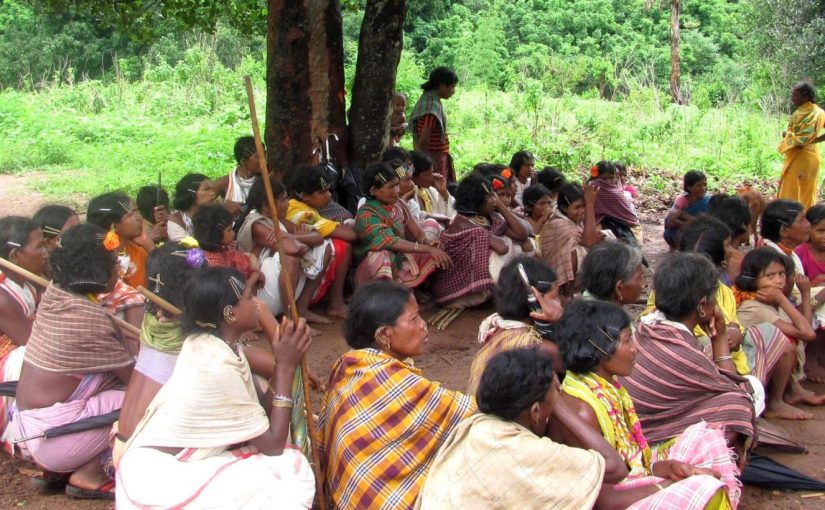By Dr Olav Albuquerque
WITH the population of Scheduled Tribes increasing in this tiny state, the Union government approved the re-adjustment of seats in the 40-member Goa legislative assembly to ensure that there is adequate representation for the deprived communities.
At present, there are many Gawdas, Velips and Dhangars in the Goa Police. The surnames Gawda and Velip are quite prolific within the police force so many constables and police sub-inspectors have this surname. With reservations, they find quick promotion within the police force and in other government jobs so that their economic conditions have drastically improved bringing them on par with other castes.
ORIGINAL INHABITANTS
SCHEDULED Tribes are the original inhabitants of Goa and live on the produce of forests. These are the Gawdas, Velips, Kunbis, and Dhangars who live in small groups in segregated villages. They have a unique lifestyle and customs, traditions, ceremonies, religious beliefs and superstitions.
They continue to observe these diverse traditions and customs for over 800 years. So much so, that when the Portuguese conquered Goa, they allowed these diverse tribes to continue with their traditions and customs.
The seat readjustment is the outcome for the scheduled tribes who have been fighting for their rights for the last several decades. A section of the Scheduled Tribe community of Goa threatened to boycott the Lok Sabha election of 2024 if the government failed to guarantee them political reservations in the state assembly.
POLITICAL GOAL
UNITED under the banner of the ‘Mission Political Reservation for Scheduled Tribes of Goa,’ many ST youths dedicated themselves to achieving their political goal of seat readjustment.
Realizing the seriousness of the issue, many non-scheduled tribe politicians supported the movement and drew the attention of the government by submitting memorandums.
Union Minister Piyush Goyal announced that the cabinet decided to enact legislation in parliament to facilitate the reservation of seats in the Goa assembly for all scheduled tribes, based on their population.
The Census Commission will be asked to notify the Scheduled Tribe population of Goa after which the Election Commission will be asked to reserve seats for these scheduled tribe population based on revised data, Goyal said. The population of the scheduled tribe community is expected to be around 150,000, he added.
All political parties whether national or regional like the Mahrashtrawadi Gomantak Party (MGP) or the Revolutionary Goans Party (RGP) need the votes of the scheduled tribes to make a dent in the general or assembly elections.
ANTI-MIGRANT
THE RGP was first registered in January 2022 and it contested 38 seats in the 2022 Goa Legislative Assembly election, winning the St Andre constituency. The party’s “anti-migrant” policies are seen to be similar to the Maharashtra Navnirman Sena (MNS) which was why this party, like the MGP, can be seen as needing the support of the scheduled tribes to send at least five MLAs to the state assembly.
The MGP emerged as the first political party to rule Goa after the Portuguese were thrown out in 1961. This party had a strong base among non-Brahmin Hindus of Goa, which was why the party succeeded in retaining power for the first two decades after colonial rule what was earlier a union territory.
This political party had its base among the scheduled tribes as well which was why the party sought the merger of Goa with Maharashtra. After the opinion poll conducted in 1967 vetoed the idea of merging Goa with Maharashtra, the founder of the MGP, Dayanand Bandodkar, abandoned the idea. He succeeded in remaining the chief minister until his death.
The Goa Commission for Scheduled Castes and Scheduled Tribes Act, 2010 which was passed by the Legislative Assembly of Goa on March 26, 2010 and given assent by the governor of Goa two months later, has just 18 sections. But this law makes provisions for setting up a commission in the state to examine the status of both the scheduled tribes and scheduled castes within the state.
Ironically, the Goa government has not provided for reservations for the Catholic community which belongs to the scheduled tribes on the fallacious notion that there is no discrimination within the Catholic community which forms the largest minority group within this state.
UNTENABLE LOGIC
HOWEVER, this logic is untenable because discrimination continues to prevail within the Catholic community. Those scheduled tribes and scheduled castes continue to observe their own distinct customs and superstitions despite embracing Catholicism under the Portuguese centuries back. They can still be identified by their peculiar surnames such as Peixote or Gawde which is still prevalent among the Catholics in Salcette and elsewhere.
Interestingly, the Scheduled Tribes may belong to any religion including the Muslims. There is no bar. Out of total 104,545,716 (or 10.45 crore) scheduled tribes population in India as per the 2011 census, the number of Muslim scheduled tribes was only 18,58,913 (or 18.6 lakh).
The scheduled tribes are found both among the Catholics and Muslims in Goa. Inter-marrying between the traditional upper castes in Goa and these scheduled castes is a rarity — which is why their unique customs and heritage should be protected and preserved.

